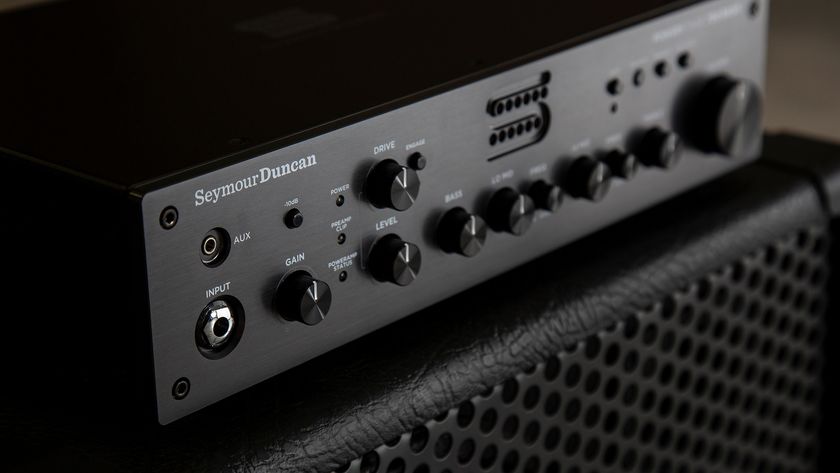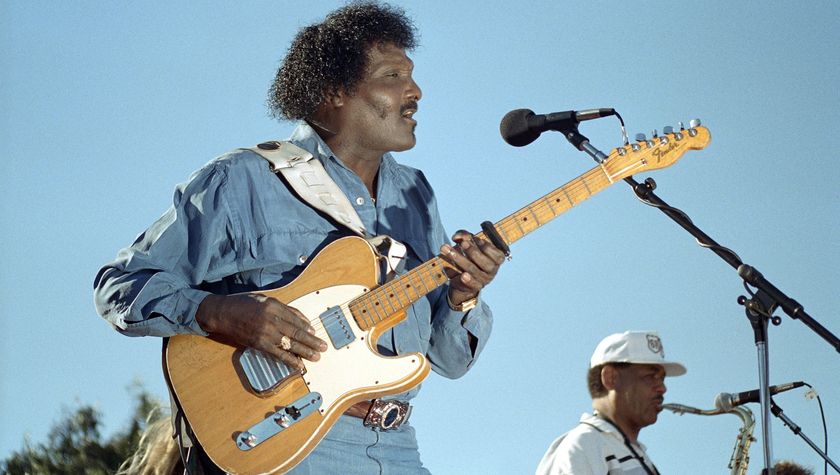Songhoy Blues' Garba Touré: “I want to have my own way on the guitar, so people say, ‘That’s Garba playing’”
The desert blues guitarist on staking out new frontiers for Malian music, and his love for the Gibson SG
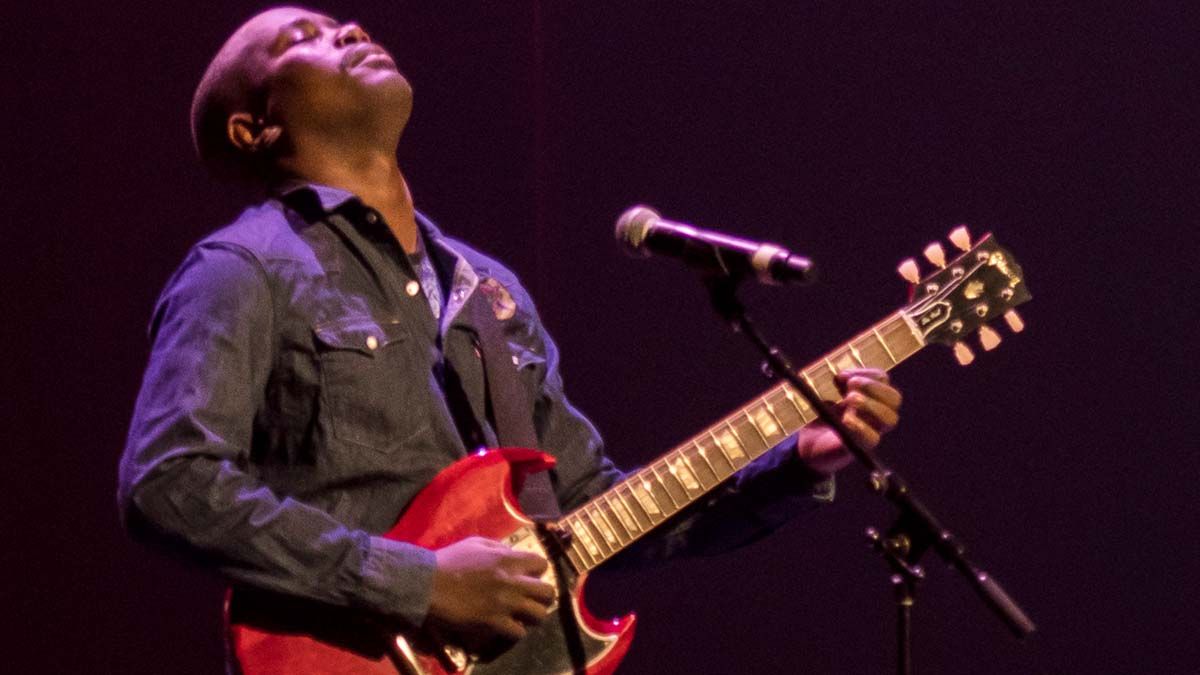
The Songhoy Blues origin story is one for the ages, and it set the Malian quartet on a creative and spiritual trajectory that they continue on today.
The story begins with exile from Timbuktu after jihadis take the country’s north, imposing Sharia law. The refugee musicians are then introduced in Bamako, Mali’s capital, and play a wedding. Guitarist Garba Touré laughs at the memory.
“No rehearsal!” he says. “We had just met that day, me, Aliou [Touré, vocals] and Oumar [Touré, drums]. It was the explosion, because to this day people talk about that performance.”
Then, they form a band, Songhoy Blues, and tour the world, with Damon Albarn’s Africa Express project helping to launch their profile internationally.
We don’t want to play the Malian music of 10, 20 years ago. We are the internet generation. We can mix all kinds of music from all over the world
Showcasing a sound rooted in rock, blues, Malian rhythm and melody, Songhoy Blues play with an effervescence that’s kryptonite to the despots seeking to lay humanity low.
As Touré explains, the spirit guiding their third album, Optimisme, is all about finding new sounds and chasing inspiration wherever that may lead...
Optimisme has so much energy. Was the idea to try capture your live performance on record?
Get The Pick Newsletter
All the latest guitar news, interviews, lessons, reviews, deals and more, direct to your inbox!
“Yeah. For us, it is always great to be onstage. You can have the most crazy ideas, so we really, really wanted to get that energy. Sometimes music makes us crazy, and when you play music like that, the energy just comes by itself. We have only known singing and dancing since we were young. That’s in our traditions. People love to dance and sing, and once we start to do that, this energy comes along.”
You’ve been described as “desert blues”, but another way to look at it is that this is the sound of Malian music in 2020…
“We don’t want to play the Malian music of 10, 20 years ago. We are the internet generation. We can mix all kinds of music from all over the world, all eras of music. We wanna try to find another way. [There’s a big difference] between the music we play and the other music coming from Mali, 20, 30…70 years ago. We are trying to find another energy for our music.”
Has touring changed your perception of music?
“Yeah! It’s almost eight years now of touring around the world, and that is influencing our music. We have met a lot of big bands around the world and we get other ideas about music – not keeping it the same like our fathers or grandfathers did. We wanna change it. We want to give it another feeling.”
What is the writing process like?
“In Songhoy Blues, everyone does everything together. Somebody can bring an arrangement and we will try and write it together. We take everybody’s ideas and then try to give them a good melody to build the song.”
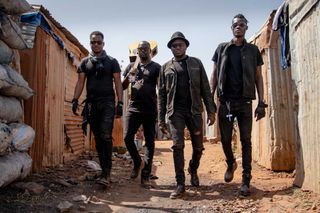
You have a crazy solo on Dournia with an amazing tone. How did you get it?
“Oh yeah, y’know, I fucking love this kind of distortion, with reverb! When we were in the studio in New York, doing this solo, I told [producer] Matt Sweeney and Daniel Schlett [engineer] which sounds I loved and they helped me get [them].
“They had a lot of pedals, and on each song, when I wanted to take a solo, I explained to them which kind of sound I wanted. Usually distortion and reverb, but sometimes delay, too.”
Was the solo improvised?
“Yeah. I’ll never play a solo like I’ve played it before. [Laughs] That’s how I play. That’s the kind of solo I love. I think music is like that. It comes naturally.”
I’ll never play a solo like I’ve played it before. That’s how I play
There are no wrong notes!
“Yeah, yeah. I’ll listen to other music, like Foo Fighters, Nirvana, Joe Bonamassa, Blur, I am always listening to other bands... AC/DC! Sometimes, I feel okay when I play some riffs and I’m thinking about Jimi Hendrix or about Stevie Ray Vaughan. But when I want to play guitar, I want to play very, very differently.
“I don’t wanna keep in my mind some guitar riff from someone else. I don’t want people to say, ‘Oh, you play like Nirvana.’ I love their music, and I am always listening to them, but I want to have my own riffs, and my own way on the guitar, so that people will say, ‘Oh, that’s Garba playing guitar.’”
How did you learn guitar?
“I learned alone. That’s why I always want to give a solo that comes from my own inspiration. My father played guitar with Ali Farka Touré, but he never wanted me to play guitar. I would always take his guitar and try to teach myself until I had learned some riffs.
“When I started, I played in Ali Farka Touré’s style, like some other Malian guitarists, Djelimady Tounkara, and in Guinea, Sekou Bembeya [Diabaté], from Orchestre de Beyla. When my Father was travelling with Ali Farka he brought me loads of songs from Jimi Hendrix, Bad Company, the Scorpions, lots of other bands...”
What gear did you play on the record?
“I played a Fender Jazzmaster on the record; I played a Gibson SG, and I played a Fender Stratocaster. The Gibson SG is my favourite. When I am on tour or in the studio I always hire a Gibson.”
Music is a weapon to fight all bad things around the world
Tell us about Korfo. That sounds like a traditional Malian arrangement.
“Yeah, that is a Malian arrangement, and there we are talking about colonisation, when Europeans came to Africa and sold people to work in coffee agriculture. This album talks about some of the difficult situations in which Malian people have lived. We want everyone to lead a great life. Everybody has to be happy.”
And to be free. That’s what music is about, too, right?
“Yeah, absolutely. That’s our mission! Because we come from this part of Mali, we want to reverse this situation. Music is a weapon to fight all bad things around the world. If people just listened to music, all the people will be great people and we will make our peace and love together.”
- Songhoy Blues' new album, Optimisme, is out now on Fat Possum.
Jonathan Horsley has been writing about guitars since 2005, playing them since 1990, and regularly contributes to publications including Guitar World, MusicRadar and Total Guitar. He uses Jazz III nylon picks, 10s during the week, 9s at the weekend, and shamefully still struggles with rhythm figure one of Van Halen’s Panama.
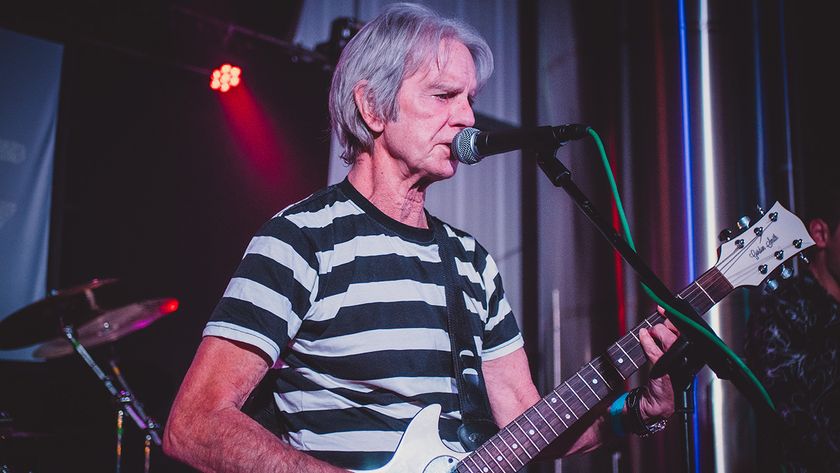
“I get asked, ‘What’s it like being a one-hit wonder?’ I say, ‘It’s better than being a no-hit wonder!’” The Vapors’ hit Turning Japanese was born at 4AM, but came to life when two guitarists were stuck into the same booth
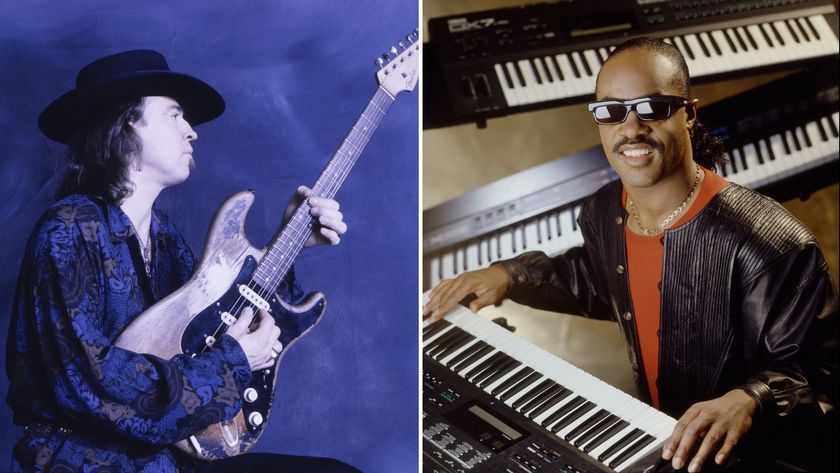
“Let's play... you start it off now, Stevie”: That time Stevie Wonder jammed with Stevie Ray Vaughan... and played SRV's number one Strat

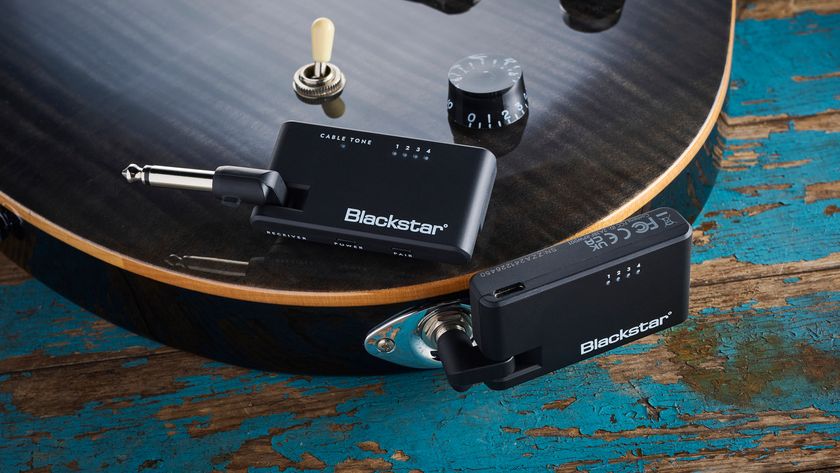
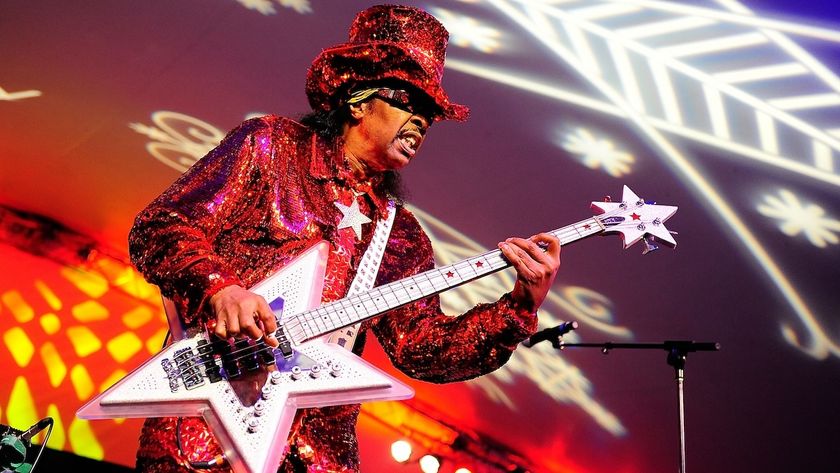
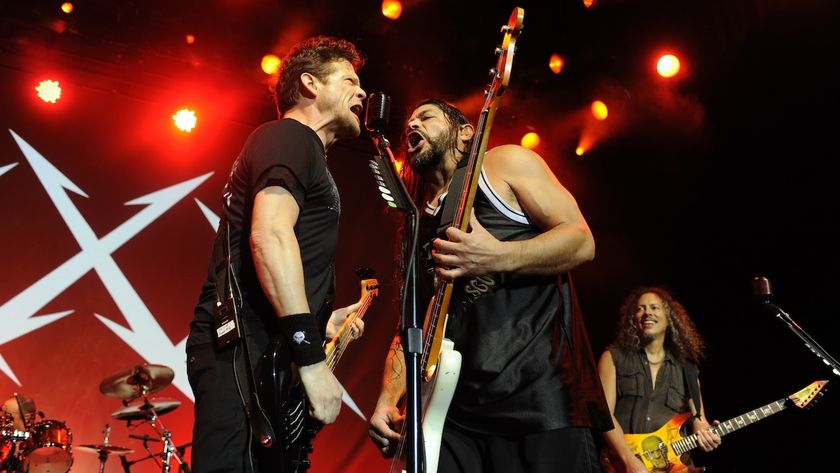
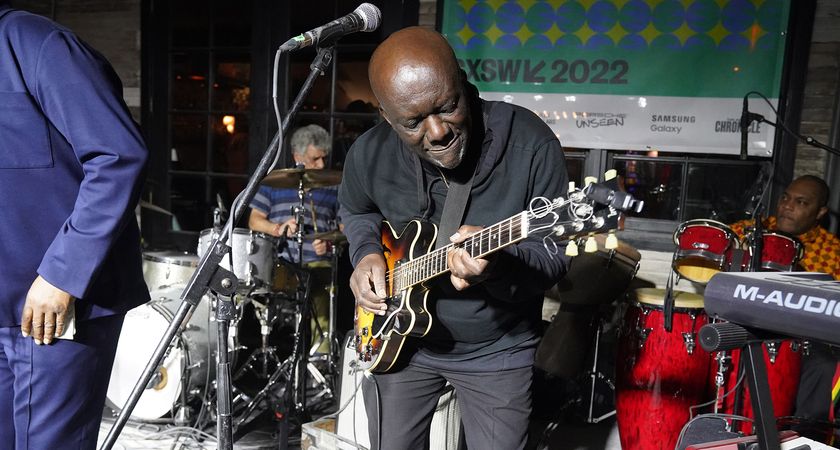
![[L-R] George Harrison, Aashish Khan and John Barham collaborate in the studio](https://cdn.mos.cms.futurecdn.net/VANJajEM56nLiJATg4P5Po-840-80.jpg)
